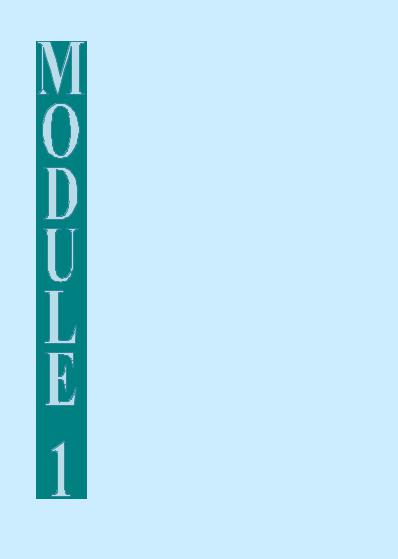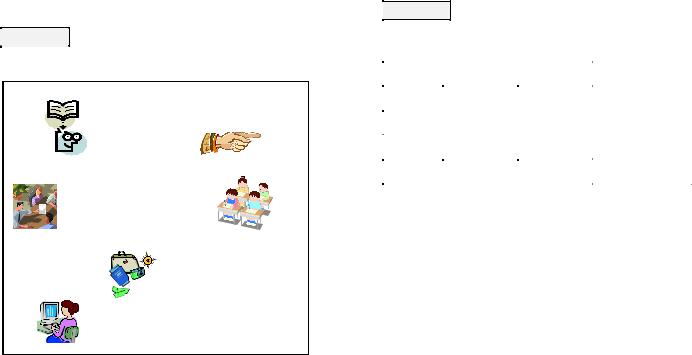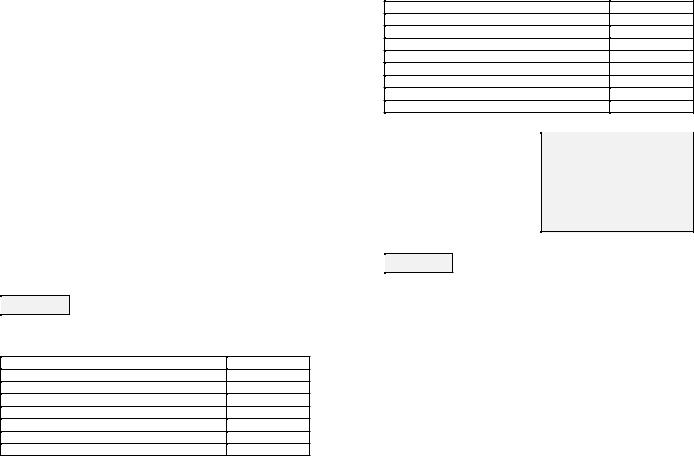
Learning to learn in English
.pdf
Федеральное агентство по образованию Российской Федерации
Федеральное государственное образовательное учреждение высшего профессионального образования
«ЮЖНЫЙ ФЕДЕРАЛЬНЫЙ УНИВЕРСИТЕТ»
О.И. САФРОНЕНКО К.С.ПЕТРОСЯН С.Ю. РЕЗНИКОВА
LEARNINGTO LEARN IN ENGLISH
Учебник английского языка
для cтудентов 1–2 курсов бакалавриата естественнонаучных и инженерных специальностей университетов
Ростов-на-Дону
Издательство Южного федерального университета
2009
УДК 811.111(075.8)
ББК 81.2 Англ-93
С12
Печатается по решению редакционно-издательского совета Южного федерального университета
Рецензенты:
заведующая кафедрой иностранных языков Ростовского юридического института МВД РФ Валдавина С. Э.,
старший преподаватель кафедры английского языка естественных факультетов Южного федерального университета Грушко Е. И.
Учебник подготовлен и издан в рамках национального проекта «Образование» по «Программе развития федерального государственного образовательного учреждения высшего профессионального образования “Южный федеральный университет” на 2007–2010 гг.»
Сафроненко О. И., Петросян К. С., Резникова С. Ю.
С 12 Learning to Learn in English: учебник / О. И. Сафроненко, К. С. Пет-
росян, С. Ю. Резникова. – Ростов н/Д: Изд-во ЮФУ, 2009. – 272 с. ISBN 978-5-9275-0573-9
Учебник «Learning to Learn in English» имеет своей целью формирование иноязычной коммуникативной компетенции в сфере учебной и частично будущей профессиональной деятельности. Учебник ориентирован на создание условий для приобретения студентами опыта использования языковых знаний и умений в различных ситуациях общения; формирования навыков планирования учебной деятельности и самостоятельной работы; активного использования современных информационных технологий; коллективной познавательной деятельности; развития творческого подхода к решению учебных и профессиональных задач; самоконтроля и оценки усвоения навыков и умений.
Учебник предназначается длястудентов1–2курсов бакалавриата естественнонаучных и инженерных специальностей университетов (уровень владения английским языком – средний и выше среднего).
ISBN 978-5-9275-0573-9 |
УДК 811.111(075.8) |
|
ББК 81.2 Англ-93 |
|
Сафроненко О. И., Петросян К. С., |
|
Резникова С. Ю., 2009 |
Южный федеральный университет, 2009
Оформление. Макет. Издательство
Южного федерального университета, 2009
CONTENTS |
|
Module 1. The Way We Learn................................................................ |
9 |
Unit 1. Learn How to Learn .................................................................... |
10 |
Unit 2. Study Smart, Not Hard ................................................................ |
23 |
Unit 3. Revise & Practise ........................................................................ |
32 |
Progress Test................................................................................... |
32 |
Module 2.What’s it Like Being a Student? ......................................... |
35 |
Unit 1. Making the Choice of Your Life .................................................. |
36 |
Unit 2. Your Personal Odyssey .............................................................. |
49 |
Unit 3. Revise & Practise ....................................................................... |
59 |
ProgressTest.................................................................................... |
60 |
Module 3. How to Survive in the InformationAge? .......................... |
63 |
Unit 1. Secret of Success ......................................................................... |
64 |
Unit 2. Hunting for Treasures ................................................................. |
76 |
Unit 3. Revise &Practise ......................................................................... |
91 |
Progress Test................................................................................... |
92 |
Module 4. Evolution of Natural Sciences ........................................... |
95 |
Unit 1. Scientific Milestones .................................................................. |
96 |
Unit 2. Scientific Revolution ................................................................. |
113 |
Unit 3. Revise & Practise ...................................................................... |
125 |
ProgressTest.................................................................................. |
125 |
2 |
3 |
Module 5. Survive or not Survive? .................................................... |
131 |
Unit 1. Global Issues ............................................................................. |
132 |
Unit 2. CleanTech = GreenTech ........................................................... |
151 |
Unit 3. Revise & Practise ...................................................................... |
164 |
ProgressTest.................................................................................. |
166 |
Module 6. Science Frontiers .............................................................. |
171 |
Unit 1. The 20th Century and Beyond ................................................... |
172 |
Unit 2. Into the Future .......................................................................... |
185 |
Unit 3. Revise & Practise ....................................................................... |
195 |
ProgressTest................................................................................... |
195 |
Module 7.The Skillful Me! .................................................................. |
199 |
Unit 1. Job Opportunities for Students ................................................... |
200 |
Unit 2. On the Job .................................................................................... |
212 |
Unit 3. Revise &Practise ........................................................................ |
223 |
ProgressTest................................................................................... |
224 |
AudioScripts........................................................................................... |
228 |
Keys ........................................................................................................ |
247 |
Listof materialsused............................................................................. |
268 |
Методическая записка
Учебник «Learning to Learn in English» предназначается для студентов 1–2 курсов бакалавриата естественнонаучных и инженерных специальностей университетов (уровень владения английским языком – средний и выше среднего). Его целью является формирование иноязычной коммуникативной компетенции, адекватной как общим целям овладения иностранным языком как средством межкультурного общения, личностного развития и самореализации, так и потребностям рынка труда в специалистах, готовых к продолжению своего образования и профессиональной деятельности в иноязычной среде.
Поскольку одна из основных задач данного учебника – развитие академических компетенций и овладение студентами общими учебными стратегиями в ходе изучения английского языка, приедлагаемая в учебнике система заданий ориентирована на создание условий для приобретения студентами опыта использования языковых знаний и умений в различных ситуациях общения; формирование навыков планирования учебной деятельности; совершенствование навыков самостоятельной работы; развитие творческого подхода к решению учебных и профессиональных задач; организацию и осуществление коллективной познавательной деятельности; самоконтроль и оценку усвоения соответствующих знаний и умений; активное использование современных информационных технологий в учебной работе. Основной акцент делается на развитие базовых навыков работы с информацией на английском языке: быстрый поиск, оценка, выбор, обработка и передача информации в различных формах и др.
Данный учебник состоит из 7 модулей, раздела «Приложение», который включает текстовую основу для прослушивания (scripts) и ключей к наиболее трудным заданиям. В начале каждого модуля сформулированы его учебные цели, которые позволяют студентам получитьчеткоепредставлениеонаправленностипредстоящейработы.Все модули имеют определенную тематическую направленность (академическую или профессиональную), разработанную с учетом требований подготовки специалистов естественнонаучных направлений. В свою очередь каждый модуль состоит из 3 разделов (Units). В первых двух рассматриваются различные аспекты избранной тематики, вводятся и закрепляются общие учебные стратегии и определенный
4 |
5 |
языковой материал, развиваются и совершенствуются коммуникативные навыки. В третьем разделе даны задания на проверку, осмысление и закрепление пройденного в первых двух разделах, задания на самостоятельную работу, проекты.
Работа в каждом разделе (Unit) включает задания под следующими рубриками:
Lead in – включает задания, имеющие своей целью выяснить фоновые знания, мнения, суждения студентов по обсуждаемой в каждом разделе тематике.
Reading – предлагает задания на развитие навыков в различных видах чтения,извлечениеосновнойинформации,пониманиеструктуры,организации и содержания текста (полного или основного).
Listening – представляет собой аудиозаписи монологов и интервью академической и общенаучной направленности, с заданиями направленными на извлечение конкретной информации, развитие навыков конспектирования, переработки и передачи информации на английском языке.
Focus on language – акцентирует внимание на определенных грамматических аспектах, ключевых словах и словосочетанияхиз изученного в разделе текста, включает задания на расширение словарного запаса студентов.
What do you think– предлагает вопросы, позволяющие выявить отношение к прочитанному материалуи соотнести его с собственными знаниями, интересами студентов и имеющимся у них опытом.
Get real – предполагает использование умений поиска информации на Интернет-сайтах, в условиях, максимально приближенных к ситуациям реальной учебной деятельности.
Writing – предлагает различные задания, направленные на развитие умения фиксировать информацию на английском языке с использованием различных форм записи (составление плана, коротких заметок, конспектирования, аннотирования, реферирования и др.).
In the Realm of Science – включает дополнительный справочный материал, отражающий специфику естественнонаучных специальностей (общепринятые сокращения, математические символы и др.).
В данный учебник включены также специальные рубрики: Managing yourlearning содержит полезныесоветы по использованию стратегий изучения иностранного языка, а также рациональные приемы работы над лексическим и грамматическим материалом и т. д.
Self study предлагает дополнительный материал для самостоятельного изучения.
Progress Monitoring – представляет задания, стимулирующие рефлексивную самооценку процесса изучения английского языка, то есть студентам предлагается самостоятельно отслеживать успешность своего продвижения в овладении английским языком.
Progress Test – представляет собой тест рубежного контроля.
В ходе работы с материалами учебника студенты получают навык ведения Языкового портфеля, то есть «пакета документов, в которых его обладатель в течение длительного времени фиксирует свои достижения и опыт в овладении иностранным языком, полученные квалификации, а также отдельные виды выполненных им работ». (Европейский языковой портфель, 1997). Использование этой технологии позволяет в процессе обучения английскому языку, с одной стороны, развивать способность к целеполаганию, умение анализировать и оценивать процесс собственного развития, с другой, является инструментом автономного изучения языка, средством накопления опыта через индивидуальную подборку достижений.
Учебник построен с использованием аутентичных материалов, основными источниками, которых являются британские и американские академические и научно-популярные издания, Интернет, проспекты ведущих университетов англоязычных стран, энциклопедии, словари. При подборе учебных материалов учитывались такие характеристики, как новизна информации, ее познавательность, соответствие учебным и профессиональным потребностям студентов.
6 |
7 |

THE WAY WE LEARN
“The important thing is not to stop questioning” A. Einstein
Learning Goals
to organize information in a mind map
to learn how to give advice
to talk about your ways of learning English and effective learning techniques
to keep a learner diary
to use mind maps for vocabulary building
to revisit Present Tenses

Unit 1 |
Learn How to Learn |
 Lead-in
Lead-in
1. Discuss the reasons students have to study English. 
Why do students study the English language?
for studies
my parents want me to learn it
for social reasons
… because it was a part of a school programme
… to improve the knowledge of the world
for the future job
2.Think about the reason/s why you learn the English language and finish the sentence:
to …
I learn English |
because … |
|
for … |
 Reading
Reading
1.Read these interviews with three people who study English as a foreign language. Complete the chart.
|
Reason(s) |
Main focus of |
Ways of learning |
|
|
study |
|
Antonio |
|
|
|
|
|
|
|
Natasha |
|
|
|
|
|
|
|
Christina |
|
|
|
|
|
|
|
You |
|
|
|
|
|
|
|
A.Interviewer: Why do you study English, Antonio?
Antonio: Well, it will be necessary in my future job as a personal assistant. So, I do a course in English at an adult institution
|
here in Madrid. I’ve been studying for three months. |
Interviewer: Which skills do you focus on? |
|
Antonio: |
I mainly need to practise speaking, writing and reading, of |
|
course. All in all I’mdoing quite well, but I find the grammar |
|
difficult. I am not sayingI hate it – I just don’t like doing the |
exercises. Though I feel you can’t really learn a language if youdon’t understand how it works. I mean, the way sentences are structured.The thing that annoysme most isthat I’malways mixing verb forms.
B.Interviewer: Why do you study English, Natasha?
Natasha: I have studied English for 5 years. Honestly I had many reasons. First, my parentswanted me to learn it, and thenI got interested in moviesand music, so I read a lot of magazines. Finally, I want to travel and meet people. I mainly focuson speaking now.
Interviewer: How do you learn it? Do you have any special methods?
10 |
11 |

Natasha: I do a lot of conversations – I talk in English with friends and even to myselfin the shower. I learn a lot of new words. I believe fluent English is absolutely impossible with limited vocabulary, so I keep a vocabulary notebook. A good way to learn new words is to write them on pieces of paper and stick them on the walls in my flat. Each time I pass them by, I look at themand read. I also include one or two phraseswith these words.
C.Interviewer: Why do you study English, Christina?
Christina: It was a part of my school programme, but I wasn’t very much interested in it. So now I am taking extra classes to improve my skills, I would say. And I really enjoy it.
Interviewer: How do you study English?
Christina: I watch a lot of video, education programmes and films. They give me a real taste of the Britishpeople and their way of life. Of course I don’t understand every word but I find it very useful to watch and guess. Besides, I can stop or rewind the tape to listen again to the part I haven’t understood or even to read the script.
What do you think?
How do you learn a foreign language?
What aspects of the language (e.g.: grammar, vocabulary, …) do you find most important?
What way(s) of learning do you enjoy?
Which of them do you find easy/difficult?
Focus on Language
Read the following sentences. What grammar tenses are used?
I watch a lot of video, education programmes and films.
I am not saying I hate it.
I have studied English for 5 years at school.
I have been studying here for 3 months.
Present Simple and Present Progressive
Present Perfect and Present Perfect Progressive
We use … to speak about permanent situations and routines
We use … to describe activities that are happening at or around the time of speaking
We use … for the event that started in the past and has been recently completed
We use … to speak about activities that began in the past, continue to the present and are still in the process
Note
*The verbs that describe statesare not normally used in the Present Progressive tense,
e.g.: |
|
|
|
|
to like |
to remember |
to own |
to hear |
to consist |
to enjoy |
to suppose |
to have |
to smell |
to include |
e.g., Ihate sitting in front of the class.
Hedoesn’t realize the responsibility he has put on hisshoulders.
**The verbs have, think, see and some others can be used in the Present Progressive tense but with the different meaning, e.g.
I think I’d take Chemistryclasses thissemester. (opinion) Kathyisthinking of getting another computer. (She is planning)
***If a speaker wants to express anger, annoyance, complaint, etc. the Present Progressive with always and constantly may be used
e.g., Tony’sdriving me crazy. He is alwaystrying to show me that he’s smarter than I.
Practice
1. List time expressions under the correct tense heading. Some expressions
can be used more than once. |
|
|
|
|
for |
every day |
still |
so far |
now |
since |
ever |
just |
usually |
always |
never |
constantly |
nowadays |
at present |
today |
Present |
Present |
Present |
Present |
|
Simple |
Progressive |
Perfect |
Perfect Progressive |
|
.............. |
.............. |
.............. |
.................... |
|
.............. |
.............. |
.............. |
.................... |
|
.............. |
.............. |
.............. |
.................... |
|
2. Complete the sentences with the verbs in the correct Present tenses.
a)Libraries today are different from those in the 1800s. For example, the contents of libraries (change) ………… greatly through the years. They
12 |
13 |

used to be simply collections of books, today most libraries (become
………. multimedia centres that (contain) ………… tapes, computers, discs, films, magazines, music and paintings. The role of the library in society (change, also) …………… .
b)Mike is a student, but he (go, not) ………… to school right now because it’s summer. He (attend) ……………… college from September to May every year, but in the summer he (have, usually) ………………… a job at the post office. In fact, he (work) ……………… there this summer.
c)How many tests you (take) ……………. since the beginning of the semester?
d)A: I am worried about Bob. He doesn’t go out to have fun or have a minute to chat.
B: Why?
A: He (study, always) ………………… something. At the moment he (do) …………… an evening class in Spanish and (enroll, just)
…………………… on an Information Technology course.
e)Jane (tutor, often) …………….. other students in her chemistry class. This afternoon she (help) ……………… Denny with his chemistry assignment because he (understand, not) ………………… the material they (work) ……………… on in their class this week.
f)I’m trying to study. I (try) ………………. to study for the last hour, but
something alwaysseemsto interrupt me. I think I’d better go to the library.
 Speaking
Speaking
1.Complete the questionnaire. Tick (V) five most useful techniques for learning English.
useful
listening to the tapes and repeating after them
talking to native speakers V
practising dialogues with partners
reading books and magazines in english
writing down and learning every new word
learning dialogues by heart
making up sentences to learn new words
useful
doing translation exercises
writing letters
writing up words and phrases
watching movies in english
keeping a vocabulary notebook
having classes with a private tutor
translating songs in english
using a grammar book
2.Work with a partner and discuss how you prefer learning foreign languages. Are you different? Make use of the phrases in the
Tool box.
Tool box: Giving explanations
I mainly need to practice …
The thing that annoys me most is … I like/prefer/enjoy studying …
… is a major part of my learning English because …
I try hard to …
The best way to learn a language for me is … When I … I am trying to …
As for … I want … I feel I need …
 Listening
Listening
1.You are going to listen to the radio interview with an English teacher.
Have you ever made any resolutions such as to give up smoking, to do sport or to learn driving? Were they a success? Why? Why not?
What thingshave you ever done or learnt on your friends’ or parents’ recommendation?
2.Listen to the radio programme and answer the questions.
a)Who may find the teacher’s advice useful?
b)How many resolutions does she speak about?
c)What exactly does she recommend to do?
d)What are the advantages of listening to English music?
14 |
15 |

Focus on language
1.Match the verbs in column Awith the nouns in column B to make phrases used in the programme.
|
A |
|
B |
1) |
set |
a) |
chance |
2) |
have |
b) |
resolution |
3) |
spend |
c) |
online |
4) |
improve |
d) |
goals |
5) |
make |
e) |
one’s schedule |
6) |
go |
f) |
English |
7) |
suit |
g) |
time |
8) |
get |
h) |
access |
2.Put a preposition where necessary.
a)to improve ………… language skills
b)to have access ……….. the Internet
c)to listen …….. programmes
d)to access …………… the radio
e)to stick …………. your goals
f)to work ………… your pronunciation
g)goals …….. speaking
h)to listen …………. efficiently
i)to look ………. a word in a dictionary
j)to look ………….. the meaning
k)to sit ……. a car
l)to sit ………… a bus
m)to talk ……… a native speaker
n)to work ……….. one’s way up
o)to look ………….. the examples
3.Choose five phrases to make sentences of your own.
What do you think?
Do you find the recommendations helpful and easy to follow? Why? Why not?
How does Lida Baker understands “making use of 24 hoursa day” to practice and improve English? Do you find this realistic?
What ways for improving your English language skills work best for you?
Make one resolutionto improve your English.Would yourecommend
it to your group mates?
 Reading
Reading
1.Before you read the article on lifelong learning check if you know what the following phrases mean. Give their Russian equivalents.
lifelong learning |
decision-making skills |
problem-solving skills |
||
self-confidence |
lifelike paintings |
a left-brained person |
||
Example: Lifelong learning |
– |
learning that lasts for the whole life |
||
–обучение на протяжении всей жизни
2.Read the article and answer the questions.
a)What are the key skills in the world of work?
b)What is the main purpose of lifelong learning?
c)What advice does the author give to students?
d)What are the main learning styles mentioned in the article?
e)Are people able to use the full potential of their brain?
f)Why is it necessary to be selective while learning?
Keep learning? Keep earning!
(1) College is just the beginning of a lifelong learning journey. With the rapid advancement of technology, changes in economy and society, you must adapt a learning mindset if you want to succeed. The key to lifelong earning is lifelong learning.
(2)Asyou embark on this path*, strive alwaysto be a student. Be opento new ideas and information, and be able to adapt. These are essential skills for the new world of work. Some benefits of becoming a lifelong learner are:
increased self-confidence when approaching new tasks or ideas;
better decision-making and problem-solving skills;
——————————
*embark on one’s path – вступать на путь.
16 |
17 |
the ability to adapt and change with the times;
greater personal satisfaction;
higher pay and more employment opportunities.
(3) To become a student for life, start by finding out how you learn best. There are three main ways of learning people tend to follow: hearing (auditory learning), seeing (visual learning) and doing (kinesthetic learning). If you are not sure which type you prefer, ask yourself how you like to be given directions. If you are an auditory learner, you prefer to be told how to get somewhere. If you are a visual learner, you prefer to be shown. If you are a kinesthetic learner, you prefer to drive yourself there first. Another important aspect of learning iswhether you are leftor right-brain dominant. “Left-brained” people are good with logic, analysis, math, language, writing and reading. “Right-brained” people are good with imagination, colors, graphics, music and rhythm. Of course, we do have the capability to think both ways. When we are able to tap into both sides* of our brains, we use our full brain potential.
(4) Many famous people used their “whole” brain. For example, Leonardo da Vinci was an artist and innovator. He sketched helicopters hundreds of years ago because he was fascinated by mechanics. He also used his knowledge of how the human body stands and moves to create extraordinary lifelike paintings.
(5) Strive to use your whole brain when studying, working and interacting with others. Also, be selective with what you feed your brain. As the adage says, “garbage in, garbage out.” The same holds true for the programs your brain uses. Only put in positive, healthy and educational programs. Your thoughts, along with the ability to add, change and discard them, are what define your mind.
(6) An ancient Chinese proverb says it best: “To gain knowledge, add things everyday. To gain wisdom, remove things everyday.” Just like a computer needs to delete files and information that are no longer useful, you have to discard old programs and information that no longer serve you. Knowing what is important and what is necessary to do will ensure that you have plenty of space left for learning the next new thing.
(Abridged and adapted from Keep learning? Keep earning! By Michelle L. Casto)
——————————
*tap into both sides – здесь, использовать оба полушария мозга.
Comprehension check
1.The words and phrases below are all from the article. Try to work out what they mean. Consult a dictionary if necessary.
a learning mindset |
to think both ways |
full brain potential |
to use “whole” brain |
to define one’s mind |
to gain knowledge |
to discard thoughts |
to hold true for smth/smb |
to sketch smth |
to feed one’s brain |
benefits |
|
2. Look back in the text and find the words that have a similar meaning to:
fast (paragraph 1) |
to be successful (paragraph 1) |
very important (paragraph 2) |
starting dealing with (paragraph 2) |
ability (paragraph 3) |
communicating (paragraph 5) |
saying (paragraph 5) |
to get (paragraph 6) |
remove (paragraph 6) |
a lot of (paragraph 6) |
What do you think?
Comment on the saying “garbage in, garbage out”. Does it always hold true?
Are you a leftor right-brained person?
Which way of learning do you prefer?
What do you think are the qualitiesof a good language learner? Work withapartner.Choose 5–10 most importantqualitiesfromthe list below and explain your choice:
enthusiastic |
independent |
responsible |
intelligent |
cautious |
attentive |
persistent |
risktaking |
hard working |
systematic |
self monitoring |
confident |
talkative |
accurate |
sociable |
flexible |
Do these qualities help students in their studies? Give your own examples.
18 |
19 |
